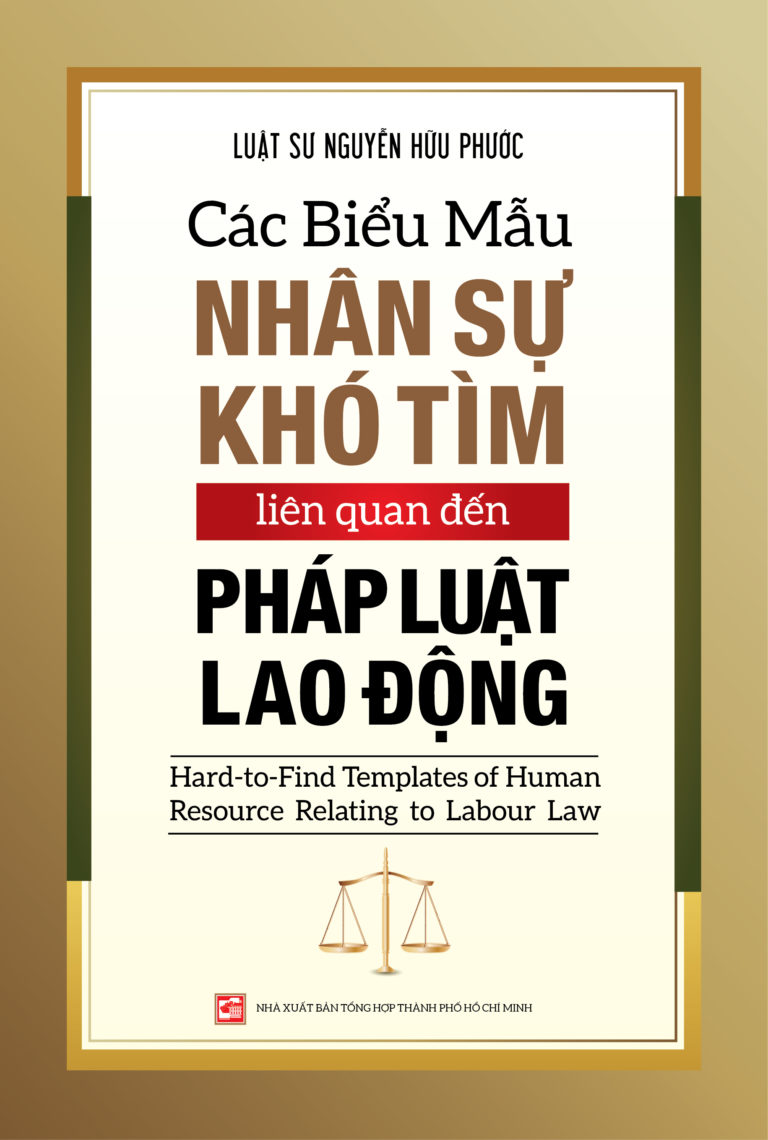Things To Note When Drafting A Loan Agreement with Foreign Elements
In the context of globalisation, loan transactions with foreign elements are increasingly becoming more and more popular, encompassing both domestic and international enterprises and individuals. Things To Note When Drafting A Loan Agreement with Foreign Elements are very essential to ensure that the participating parties comply with legal regulations, and simultaneously minimise risks arising from differences in legal systems across countries.
Definition of a loan agreement with foreign elements
According to Article 663 of the Civil Code 2015, an agreement with foreign elements is the agreement in which one or more foreign elements are included. These factors include:
- There is at least one of the participating parties is a foreign natural person or juridical person;
- The participating parties are Vietnamese natural persons or juridical persons but the basis for the establishment, modification or termination of such relation arose in a foreign country;
- The participating parties are Vietnamese natural persons or juridical persons but the subject matter of such civil relation is located in a foreign country.
Loan agreements with foreign elements principally imply borrowing capital from international credit institutions, foreign companies or from international individual partners. The participating parties must pay specific concentration to the differences in international and national laws when drafting and signing this loan agreement.
Determination of law applying
One of the most vital Things To Note When Drafting A Loan Agreement with Foreign Elements is the determination of law applying in the agreement. The parties to the agreement have the right to agree on choosing the law of a particular country to govern the agreement. Typically, the law of the lender’s or borrower’s country, or the law of the country where the collateral is located, which has a close related to the agreement, will be chosen.
If the parties do not have a consent, according to Article 683 of the Civil Code 2015, the law applying will be the law of the country most closely associated to the agreement.
Things To Note When Drafting A Loan Agreement with Foreign Elements, the selection of the applied law must be clear and ensure that it is in line with the interests of both parties, since this affects the way disputes are resolved and the agreements is implementated in the future.
Things To Note When Drafting A Loan Agreement with Foreign Elements
Interest terms
Interest rate is an indispensable factor in a loan agreement with foreign elements. Vietnamese law stipulates that the maximum interest rate is 20%/year according to Article 468 of the Civil Code 2015, however, in transactions with foreign elements, the interest rate may be consented upon by the both parties and must comply with relevant national laws.
When drafting, it is necessary to particularize the interest rate, interest calculation modus and interest rate adjustment mechanism to evade legal conflicts or disputes later.
Regulations on settlement of dispute
In Things To Note When Drafting A Loan Agreement with Foreign Elements, the regulation on settlement of dispute plays a significant role. The parties may consent to choose arbitration or the court. The choice of arbitration or national court needs to be carefully considered since the procedural process, expenses, and enforceability of judgments may vary between countries.
Foreign Exchange Regulations
- Determine the type of loan
Before drafting a loan agreement with foreign elements, the lender and the borrower need to clearly determine the type of loan. According to the regulations of Article 2.1 of Circular 12/2014/TT-NHNN, foreign loans without guarantor are classified into two types:
- Short-term loans: Loans with maturities of up to one year. Whether the loan is classified as short-term or mid-term or long-term loan will affect the obligation to register the loan with the State Bank.
- Mid-term or long-term loans: Loans with maturities longer than one year. The borrower needs to register these loans with the State Bank according to Article 11.1 of Circular 12/2022/TT-NHNN.
If the borrower makes a short-term loan but has a principal balance after a one-year term, the borrower must register the loan with the State Bank, unless it can be paid within 30 days from the expiration date.
- Limit of foreign loans
The limit of foreign loans without guarantor will be ratified annually by the Prime Minister. This limit only applies to mid-term and long-term loans, as well as short-term loans requiring registration. The parties must comply with the regulations on loan limits when drafting a loan agreement with foreign elements, including:
- If borrowing for a project in mid-term or long-term loans to which the borrowed has contributed investment capital, the limit of loan must not exceed the borrower’s capital contribution ratio.
- For projects that has been granted an investment certificate, the loan balance must not exceed the difference between the total investment capital and the stake.
For options without investment certificates, the loan balance must not exceed the total ratified capital demand.
- Loan purpose and usage
The purpose of the loan is a very important factor in the loan agreements. The borrower is only allowed to take foreign loans for two main purposes:
To implement a production, business plans or investment projects: These plans must be ratified in accordance with Vietnamese law.
To restructure foreign loans: However, the borrower must ensure that this restructuring does not increase borrowing expenses.
The borrower must clearly state the purpose of the loan in the loan agreement with foreign elements to evade rejection during the loan registration procedures or when amending the agreement. Using the loan for unauthorized purposes can lead to grievous legal risks.
- Foreign currency loans
Borrowers can take loans in foreign currencies or Vietnamese dong. However, in the case of loans in Vietnamese dong, it is essential to ensure that the borrower must be a microfinance institution or a foreign direct investment enterprise. Other cases require ratify from the Governor of the State Bank.
In fact, very few borrowers take loan in Vietnamese dong. Therefore, the use of foreign currency is often preferred. In the loan agreement, the lender should stipulate the currency that will be used to evade disputes later.
Language of the agreements
In a loan agreement with foreign elements, there are often at least two languages involved. One of the important considerations is to clearly determine the primary language of the agreements to evade misunderstandings or disputes in terms of language.
The choice of the primary language should be consented from the beginning and explicitly stated in the agreement to ensure the interests of both parties.
Conclusion
Loan agreements with foreign elements require thorough preparation and extensive understanding of the legal systems of the countries involved. Things To Note When Drafting A Loan Agreement with Foreign Elements have been analyzed in detail from the choice of law, regulations on interest rates, to security measures and dispute resolution. Proper compliance with legal regulations and ensuring the interests of both parties will aid the agreements conduce promply,
The above is an overview of Things To Note When Drafting A Loan Agreement with Foreign Elements. If you have difficulties in finding a Law Firm to advise and support in the relevant legal field, please contact us. Phuoc & Partners is a professional consulting firm established in Vietnam and currently has nearly 100 members working in three offices in Ho Chi Minh City, Hanoi and Danang. Phuoc & Partners is also rated as one of the leading consulting firms in Vietnam with highly specialised teams in top legal fields such as Labour and Employment, Taxation, Merger and Acquisition, Litigation. We are confident in providing customers with optimal and effective service.










